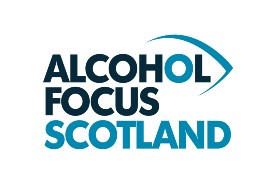Campaigns & Policy
- Minimum pricing
- Availability and licensing
- Alcohol marketing
- Improved labelling
- Harm to others
- Supporting local action
- Personal stories
- Scottish policy
- International policy
- Involvement
Alcohol strategy
Our recommendations for the next Scottish Government alcohol strategy.
Scottish policy
Scotland can legislate, formulate and lead public policy on alcohol in aspects of health, licensing, treatment and criminal justice.
The UK government retains control over taxation and broadcast advertising.
The aim of the Scottish Government's alcohol strategy is to reduce overall alcohol consumption and harm. Changing Scotland's Relationship with Alcohol: A Framework for Action was published in 2009 and contains around 40 measures to reduce alcohol-related harm.
The framework identifies the need for sustained action in four areas:
- reduced alcohol consumption
- supporting families and communities
- positive public attitudes, positive choices
- improved treatment and support
The progress of Scotland's alcohol strategy has been monitored and evaluated by NHS Health Scotland through the MESAS (Monitoring and Evaluating Scotland's Alcohol Strategy) programme.
The Scottish Government will publish the next phase of Scotland's alcohol strategy in early 2018.
A new Substance Misuse Treatment Strategy will also be published in spring 2018 - read more
Local Alcohol and Drug Partnerships
Alcohol and Drug Partnerships (ADPs) have a key role in delivering Scotland's national alcohol strategy. There are 30 ADPs in Scotland which bring together local partners including health boards, local authorities, police and voluntary agencies. Find out how we support ADPs
ADP's are responsible for developing local strategies for tackling alcohol and drugs based on assessment of local needs, circumstances and resources. Each ADP contributes to the delivery of their local Community Planning Partnership's Single Outcome Agreement.
Alcohol Brief Interventions
Scotland has a national programme of Alcohol Brief Interventions. ABIs are targeted at anyone who is drinking above the recommended guidelines, but not at a dependent level. They have been shown to be effective in reducing consumption among harmful and hazardous drinkers.
The priority settings for delivering ABIs are:
- primary care
- A&E
- antenatal care
